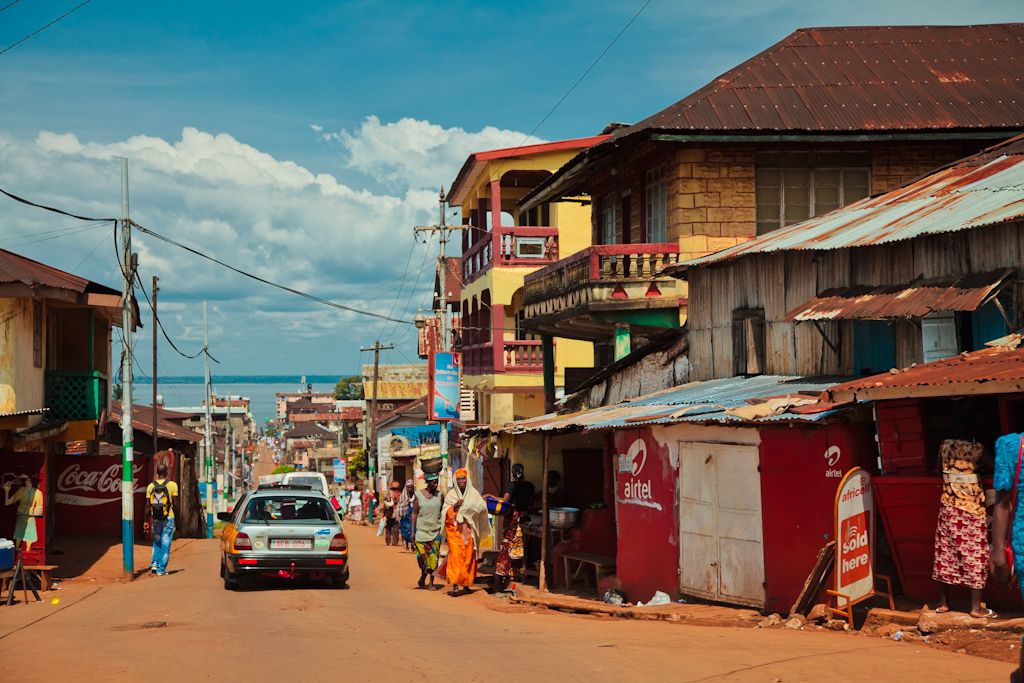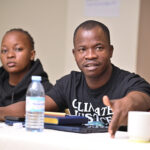This article was published more than 7 years ago.

The August 14 landslide and floods in Freetown shocked people around the world. At least 500 people died, and several hundred more remain unaccounted for. Thousands of people have been displaced, and hundreds of thousands of dollars’ worth of property have been lost.
Many Sierra Leoneans have been thinking about what, if anything, could have been done to prevent this tragedy. This was not simply a natural disaster. Government negligence played a crucial role in the loss of life.
Freetown is a densely populated city and home to a third of the country’s population. So many residents live in and around the capital because the government has been slow to empower local councils throughout the country and devolve functions and resources to them. As a result, the councils cannot provide basic services and opportunities in rural areas. Residents who might otherwise live and work in the provinces instead flock to Freetown.
In the absence of safe, low-cost public housing, the city’s rapid development has given rise to many poorly-planned and disaster-prone settlements. The poor are particularly vulnerable; they have had to resort to building on whatever appears to be a vacant piece of land. One of the defining features of the city is the spectacle of shacks and mansions side-by-side dotting hillsides. Alarmingly, some of the houses hit by the mudslides were built in a waterway. Only a few of the homes had valid building permits, partly because the process of issuing permits is painfully slow and often characterised by blatant corruption.
The government’s response afterward also exacerbated residents’ vulnerability. Several hours after the landslide, it was mostly volunteers working to rescue the victims—with their bare hands. It took the government several days to assemble the few excavators they had to rescue victims or recover the bodies buried under the mud. For a country that has invested over $200 million on road construction in the last decade alone, it is hard to understand why the government’s public works department did not have the vehicles and machinery needed to undertake the rescue efforts.
Since the August 14 disaster, the government and people of Sierra Leone have received tremendous support from both local and international partners. Local civil society organisations have contributed in a host of ways: participating in the rescue and recovery operations, providing relief goods, and providing counselling services to the victims. My organisation, the Centre for Accountability and Rule of Law (CARL-SL) has been documenting donations made to the government, and will monitor the use of the resources.
CARL has also assigned volunteers to the temporary resettlement camps to monitor whether the immediate needs of the victims are being addressed. We plan to produce a report that covers the government’s response, particularly the rescue and resettlement of victims. The organisation has also funded and participated in a number of radio discussion programmes to raise awareness and deepen knowledge about climate change, advising citizens to avoid disaster-prone areas. Ultimately, the government must fund a low-cost housing programme, especially for those living in the most at-risk areas.
In addition to meeting residents’ immediate physical and social needs, the government should hold accountable those who allowed this tragedy to unfold. Sadly, with the 2014 Ebola crisis, we saw how the government poorly managed resources. A 2015 report by the national auditing agency, Audit Service Sierra Leone, revealed that 30 percent of Ebola funds were not properly accounted for. The report concluded that the poor management of Ebola funds might have undermined the government’s response, leading to the unnecessary loss of lives.
The government cannot afford a repeat of this financial mismanagement. While we might not be able to stop the heavy rains so common in Sierra Leone, we can repair the harm suffered by victims and prevent future tragedies through proper urban planning, more effective disaster response, and holding government officials to account for their inaction during times of crisis.
CARL-SL has been a grantee of the Fund since 2005.


